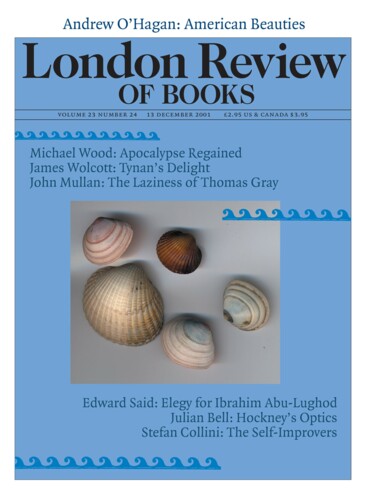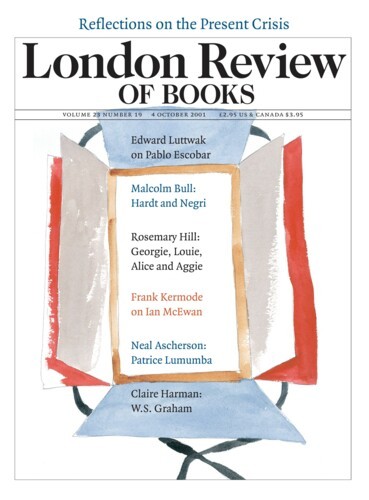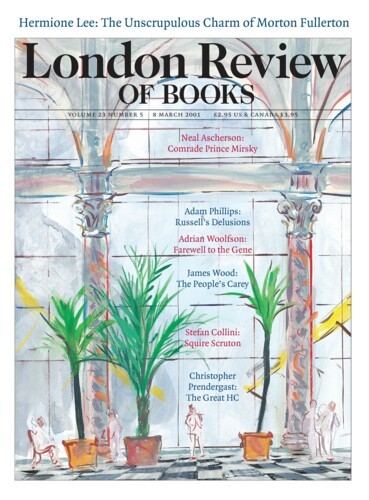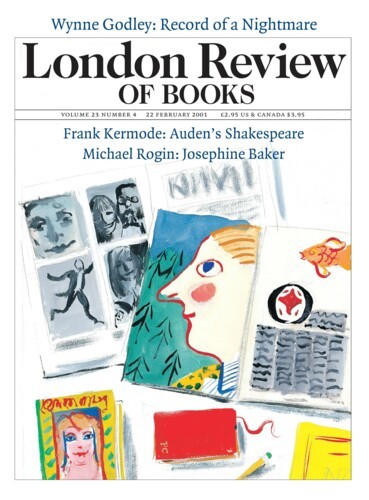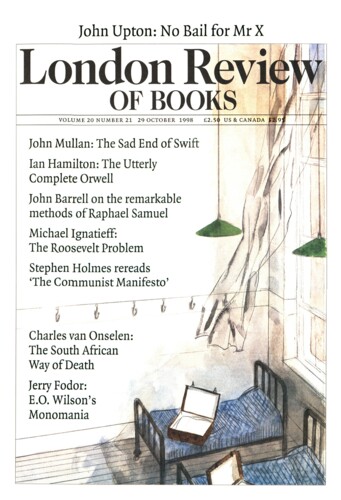Amused, Bored or Exasperated: Gustave Flaubert
Christopher Prendergast, 13 December 2001
And so another literary ‘life’, framed, as is the custom, by a beginning (childhood) and an ending (death), although Geoffrey Wall, on retiring from his story, decorates the frame with a nicely incongruous detail: ‘Flaubert’s coffin, too big to fit into the grave, had to be left stuck at an angle, headfirst, and only halfway into the earth.’ Flaubert’s...
